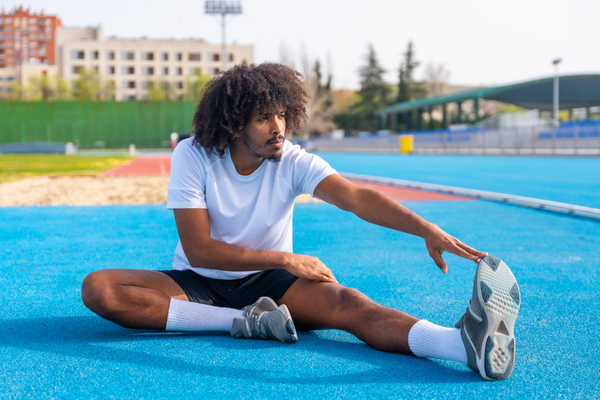Mental Toughness: The Key to Enhanced Performance in Sports
In the world of sports, mental toughness often determines who stands on the podium and who watches from the sidelines. While physical strength, speed, and skill are essential, it’s the ability to stay focused, confident, and resilient under pressure that truly sets elite athletes apart. In this blog, we’ll explore why mental toughness is crucial for athletic success and how you can develop this critical trait to enhance your performance.
Table of Contents
- Understanding Mental Toughness
- How to Develop Mental Toughness
- The Role of Visualization in Mental Toughness
- Overcoming Pressure and Adversity
- Summary
- References
Understanding Mental Toughness
Mental toughness is the ability to stay composed, focused, and confident in the face of adversity. It’s what allows athletes to perform at their best, even when the odds are against them.
- Resilience: The capacity to bounce back from setbacks, mistakes, or failures is key. In sports, losses and mistakes are inevitable, but how you respond to them is what truly matters (Gucciardi, Hanton, & Fleming, 2017).
- Confidence: Believing in your abilities, regardless of the situation, is critical. Confidence enables you to take risks, push boundaries, and maintain composure under pressure (Clough & Strycharczyk, 2015).
- Focus: The ability to concentrate on the task at hand, blocking out distractions, is a hallmark of mental toughness. It allows athletes to execute their skills precisely, even in chaotic environments (Jones, Hanton, & Connaughton, 2002).
How to Develop Mental Toughness
Building mental toughness isn’t just about "toughing it out"—it’s about cultivating a mindset that embraces challenges and thrives under pressure. Here are some ways to develop it:
Embrace Challenges
Seek out situations that push you out of your comfort zone. Whether it’s competing at a higher level or trying a new training technique, embracing challenges helps build resilience (Madrigal & Robbins, 2020). Athletes who voluntarily engage in difficult tasks are more likely to develop the mental resilience needed to succeed under pressure.
Practice Positive Self-Talk
What you say to yourself matters. Replace negative thoughts with positive affirmations. Instead of “I can’t do this,” tell yourself, “I’ve trained for this, I’m ready.” Studies show that self-talk improves performance by enhancing concentration and confidence (Tod, Hardy, & Oliver, 2011).
Set Small, Achievable Goals
Breaking down your ultimate goal into smaller, manageable tasks boosts confidence and keeps you motivated. Achieving mini-goals also provides the psychological boost necessary to tackle larger challenges (Locke & Latham, 2002).
Stay Present
Focusing on the present moment, rather than worrying about the past or future, helps maintain focus and reduces anxiety. Techniques like mindfulness meditation can be particularly effective for athletes who struggle with maintaining focus during high-stakes situations (Kaufman, Glass, & Pineau, 2018).
The Role of Visualization in Mental Toughness
Visualization is a powerful tool for building mental toughness. By mentally rehearsing your performance, you can prepare your mind and body for success.
Create a Clear Image
Visualize every detail—what you see, hear, and feel during your performance. The more vivid the image, the more effective the visualization (Cumming & Ramsey, 2009). This process allows athletes to simulate high-pressure situations and mentally prepare for them.
Practice Regularly
Make visualization a regular part of your training routine. Just like physical practice, mental rehearsal needs consistency. Athletes who regularly use visualization techniques report better focus and stress management (Vealey & Greenleaf, 2010).
Use All Senses
Engage all your senses in the visualization process. This makes the experience more real to your brain, which can enhance your actual performance. Studies have found that multisensory imagery improves both motor skills and confidence in athletes (Williams & Cumming, 2011).
Overcoming Pressure and Adversity
Every athlete faces pressure and adversity at some point. How you handle these situations can make or break your performance.
Preparation
The more prepared you are, the more confident and less stressed you’ll be. Whether it’s mental rehearsal, studying your opponents, or ensuring you’re physically ready, preparation is key (Beilock & Carr, 2001).
Control the Controllables
Focus on what you can control—your effort, attitude, and preparation—rather than external factors like the referee’s decisions or the crowd’s reactions (Sarkar & Fletcher, 2014). By focusing on internal factors, athletes can maintain composure in high-pressure situations.
Stay Calm Under Pressure
Develop techniques to manage stress in high-pressure situations, such as deep breathing, mindfulness, or focusing on your pre-game routine (Hanin, 2000). These techniques help athletes reduce anxiety and perform at their best.
Let's Wrap it up
Mental toughness is the backbone of athletic success. While physical skills and preparation are crucial, your mental resilience, focus, and confidence ultimately determine how well you perform under pressure. By embracing challenges, practicing visualization, and learning to manage stress, you can build the mental toughness needed to excel in any sport. Like any other skill, mental toughness is something you can develop and strengthen over time. Start implementing these strategies today and unlock your full potential in sports.
References
Beilock, S. L., & Carr, T. H. (2001). On the fragility of skilled performance: What governs choking under pressure? Journal of Experimental Psychology: General, 130(4), 701-725. https://doi.org/10.1037/0096-3445.130.4.701
Clough, P., & Strycharczyk, D. (2015). Developing mental toughness: Improving performance, wellbeing, and positive behaviour in others. Kogan Page Publishers.
Cumming, J., & Ramsey, R. (2009). Imagery interventions in sport. Advances in Applied Sport Psychology, 5, 5-36. https://doi.org/10.4324/9780203887361
Gucciardi, D. F., Hanton, S., & Fleming, S. (2017). Are mental toughness and mental health contradictory concepts in elite sport? Journal of Science and Medicine in Sport, 20(8), 778-782. https://doi.org/10.1016/j.jsams.2016.12.006
Hanin, Y. L. (2000). Emotions in sport. Human Kinetics.
Jones, G., Hanton, S., & Connaughton, D. (2002). What is this thing called mental toughness? An investigation of elite sport performers. Journal of Applied Sport Psychology, 14(3), 205-218. https://doi.org/10.1080/10413200290103509
Kaufman, K. A., Glass, C. R., & Pineau, T. R. (2018). Mindful sport performance enhancement: Mental training for athletes and coaches. American Psychological Association.
Locke, E. A., & Latham, G. P. (2002). Building a practically useful theory of goal setting and task motivation: A 35-year odyssey. American Psychologist, 57(9), 705-717. https://doi.org/10.1037/0003-066X.57.9.705
Madrigal, L., & Robbins, J. E. (2020). The role of mental toughness in collegiate athletes' performance during training and competition. Journal of Applied Sport Psychology, 32(1), 47-60. https://doi.org/10.1080/10413200.2019.1585009
Sarkar, M., & Fletcher, D. (2014). Psychological resilience in sport performers: A review of stressors and protective factors. Journal of Sports Sciences, 32(15), 1419-1434. https://doi.org/10.1080/02640414.2014.901551
Tod, D., Hardy, J., & Oliver, E. (2011). Effects of self-talk: A systematic review. Journal of Sport and Exercise Psychology, 33(5), 666-687. https://doi.org/10.1123/jsep.33.5.666
Vealey, R. S., & Greenleaf, C. A. (2010). Seeing is believing: Understanding the mental side of sports imagery. Human Kinetics.
Williams, S. E., & Cumming, J. (2011). Measuring athlete imagery ability: The sport imagery ability questionnaire. Journal of Sport and Exercise Psychology, 33(3), 416-440. https://doi.org/10.1123/jsep.33.3.416

.png)
.png)





